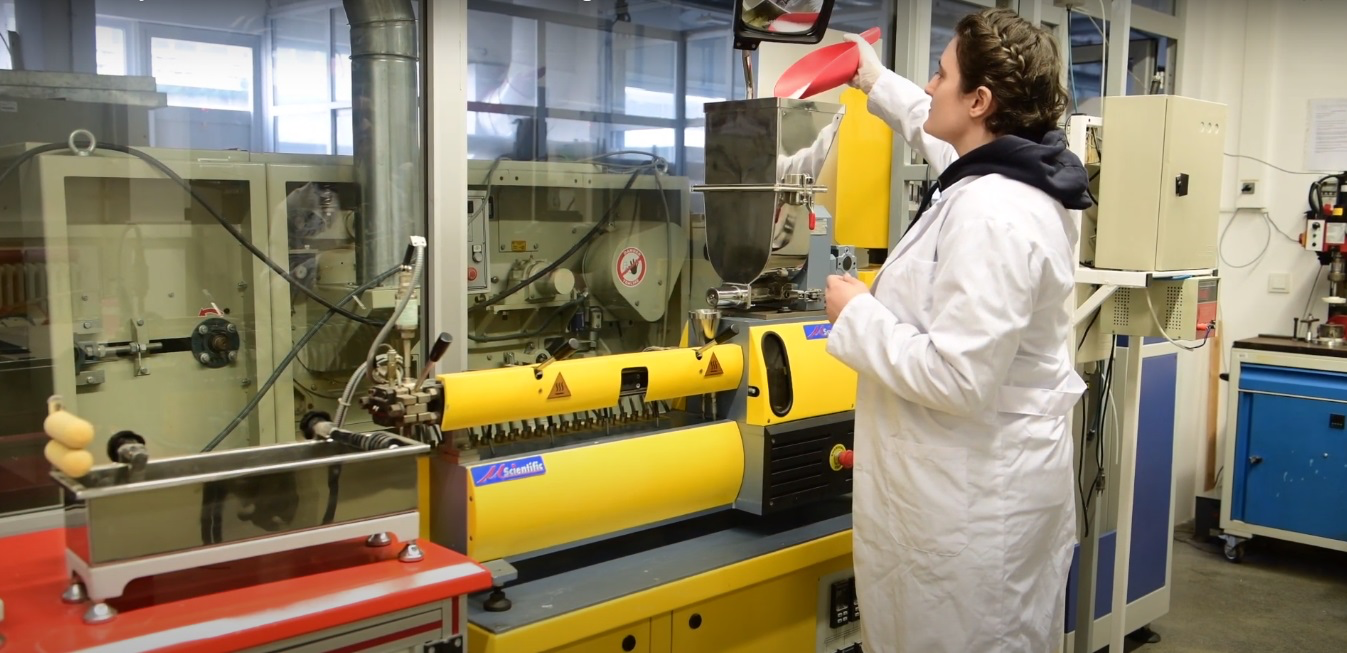Prof. Mustafa Köseoğlu Textile Based Composite Advanced Technology and Innovation Center
Founded in 2015 with the support of Istanbul Development Agency, Prof. Mustafa Köseoğlu Textile-Based Composite Advanced Technology and Innovation Center works on the design, production and performance properties of thermoset and thermoplastic-based textile-reinforced composites.
Among the works carried out in 2020 are the development of a structural health monitoring system for fiber-reinforced polymer composite materials, the design of multifunctional, high-value-added, glass/carbon fabric-reinforced lightweight composites with porous insulating materials, improved sound and heat insulation properties, and the design of denim fabric and polyethylene packaging wastes. sustainable industrial product designs, recycling of polyethylene bottle caps together with textile wastes and evaluation in composite structures, development of fabric-reinforced hybrid composite materials for acoustic insulation, bioresin-based composites and basalt fiber-reinforced thermoplastic composites for the automotive industry with cooling rate controlled production and gaining advanced mechanical properties is located.
Production of composite materials in the laboratory (vacuum infusion method, autoclave method and hot press method), sample cutting on CNC machine, sample conditioning processes (air conditioning cabinet), sound absorption coefficient and sound permeability measurement (impedance tube), fatigue determination and falling weight impact test services is given.
Laboratory Manager: Prof. Dr. Nevin Çiğdem Gürsoy
Communication:
gursoyne@itu.edu.tr
Service Procurement:
ITUPleks
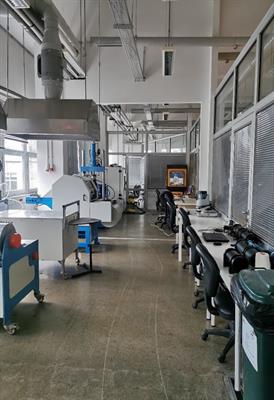
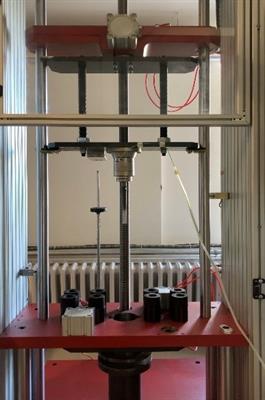
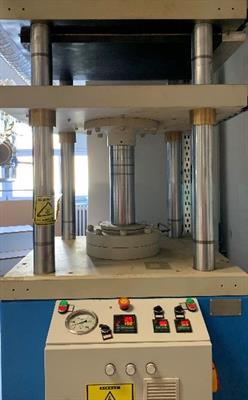
TEMAG Laboratory: Air Filtration (NEFES) and Medical Textiles (MEDITEKS) R&D Centers
TEMAG Laboratory, which turned into a research group with the TUBITAK 104M414 project in 2004, has reached its current capacity with the support of over 20 national and international companies as well as TUBITAK and Development Agency. In 2016, Turkey's only Air Filtration R&D Center (NEFES) and in 2019 Medical Textiles R&D Center (MEDİTEKS) were established within the TEMAG Laboratory. Within the scope of the activities of the Mediteks R&D Center in 2020, interdisciplinary studies are carried out from medical textile products such as first aid training, hospital validation tests, patient bedspreads, wound dressings to polymer composite material preparation systems, fiber and nanofiber production machines.
During the current pandemic process, a significant increase has been observed in the number of studies on face masks. In these masks, the design and production of nanofiber layers, which have the potential to hold microorganisms and particles with a size of around 100 nm, such as the Covid-19 virus, were among the most important topics. In the TEMAG Laboratory, studies have been initiated for the industrial production of the solution blowing system, which has been used on a laboratory scale since 2015. In the light of the findings, it aims to meet the industry with a daily production capacity of 50,000 FFP3 masks.
Another new system included in the TEMAG Laboratory in 2020 is the melt fiber spinning system. With this production method, smart material properties such as flame retardancy, conductivity, resistance to chemicals and UV light, hydrophilic / hydrophobicity, sensitivity to environmental effects can be added to the fibers, and it is possible to recycle waste plastics into textile fibers. Among the current project topics of MediTeks R&D Center is the production of surgical threads using the melt spinning system.
Scanning electron microscope (SEM), optical and stereo microscope, UV-VIS DRS spectroscopy (for films and liquids), air filter test center (nanol fiber, nonwoven etc.), liquid viscosity measuring device, nanofiber production machines (electrospinning, solution) in the infrastructure of TEMAG Laboratory blowing, centrifugal spinning), clean room validation systems, vacuum resin transfer system, fiber winding systems, film spinning system 3D printer filament spinning system, double screw compound (polymer mixing) system, melt fiber spinning system, lyophilizer, foulard / mini ram, glove box, carbonization oven (<1800°c), Li-ion battery performance analysis systems, uv ozone cleaner, solar simulator lighting device contact angle measurement, device and electrophoretic coating devices.
Laboratory Manager: Prof. Dr. Ali Demir
Communication: ademir@itu.edu.tr
Service Procurement: ITUPleks
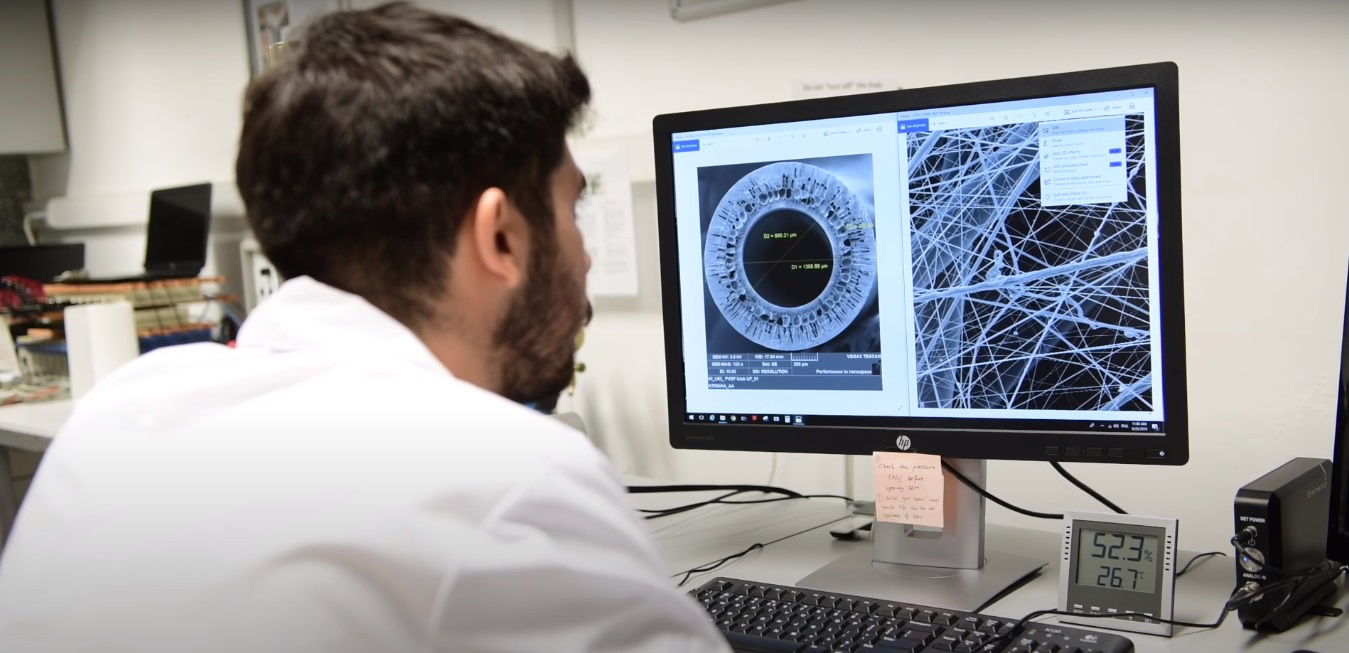
Universal Textile Design Center
Universal Textile Design Center was established in 2014 with the support of Istanbul Development Agency. In 2015, it turned into a modern center with the contribution of various industrial organizations in addition to the machinery and equipment provided by the Istanbul Development Agency. The project team consists of academicians, designers, disabled individuals and their relatives, health workers, physiotherapists, psychologists and volunteers. Project participants are Istanbul Metropolitan Municipality, Sancaktepe Municipality, Turkish Spastic Children's Foundation and Istanbul Textile and Raw Material Exporters' Association (İTHİB), who have given great support at every stage of the project.
The Center carries out its activities to benefit disabled people living in Istanbul. The aim of the center is to guide the industry for the production of these products by designing easy-to-wear, easy-to-care, comfortable and aesthetic products that can be used by everyone, taking into account the needs of disabled individuals, in order to increase the living comfort/standards of individuals with disabilities and special needs, and then to guide the industry for the quality control of these products. to be an institution. In line with these purposes, the main project subjects carried out within the center are heating pad design that can be integrated into the desired part of the garment for wheelchair users, easy to wear, easy-to-wear, comfortable denim trousers design for muscle patients, and a QR code containing braille alphabet that visually impaired individuals can benefit from. clothing label design and apron design by considering infection transmission, occupational safety and physician comfort in dentistry, and the design of comfortable home textile products that appeal to different disability groups, are easy to use and maintain.
Laboratory Manager: Prof. Dr. Nevin Çiğdem Gürsoy
Communication: gursoyne@itu.edu.tr
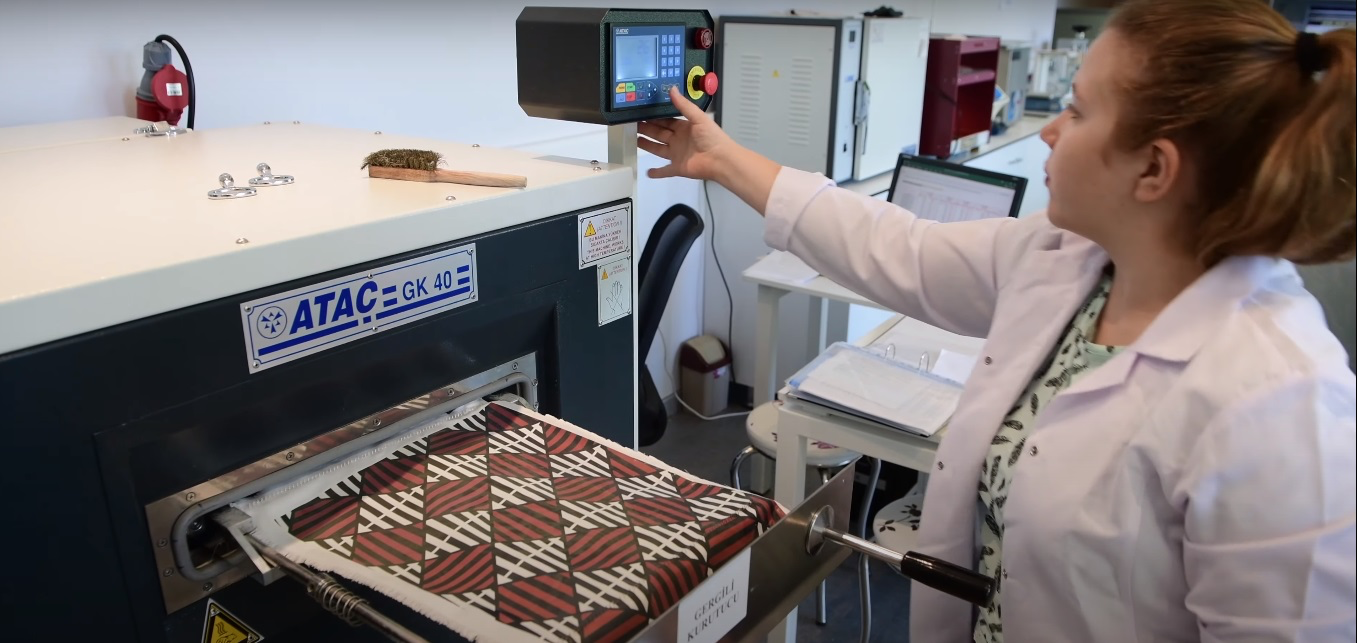
TESENLIF Laboratory
Tesenlif laboratory has been carrying on its activities in a wide range of fields such as nanofiber membrane production, fiber/yarn design and production studies of nanocomposite fibers and the development of glass epoxy composites for about 15 years, with its multidisciplinary R&D studies. Many TÜBİTAK-supported projects have been successfully carried out in the laboratory so far, and many graduate and doctoral students have had the opportunity to conduct scientific and technological studies in these projects. The end uses of the fibers and surfaces produced in Tesenlif Laboratory include military applications, security areas and protective clothing.
Experimental studies continued actively within the scope of the TUBITAK project named “Development of Multifunctional, High Value Added, Glass/Carbon Woven Reinforced Lightweight Composites with Porous Insulating Materials, Sound and Heat Insulation Properties, with Project No. 218M766 throughout 2020”. In the project, the development of high value-added industrial products that can be used in sound and heat insulation by using polymeric and inorganic materials and the use of these products in fiber-based epoxy composites. In addition, it is aimed that the developed polymeric insulation materials can be used in the technical textile/clothing industry, thanks to their heat and sound insulation.
Laboratory Manager: Assoc. Prof. Dr. Alper Gürarslan, Assoc. Prof. Dr. Meltem Yanılmaz, Assoc. Prof. Dr. İkilem Göcek
Communication: gurarslan@itu.edu.tr, yanilmaz@itu.edu.tr, goceki@itu.edu.tr
